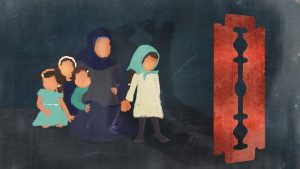By Tamia Nuna
Kenya’s progress in achieving Sexual and Reproductive Health has become evident over the years, causing improved access to healthcare to individuals previously excluded. However, the youth in Kenya still face a myriad of SRHR challenges, such as teenage pregnancies, early marriages, HIV, and Sexual and Gender-Based Violence, which can be effectively be addressed through proper education and awareness.
Young people have an unmet need for information on Sexual health, and different stakeholders have made efforts to address this. An example is the use of digital technology to raise awareness on contraception, STIs, and HIV, and connect healthcare providers with people. Organisations has been at the forefront of holding online campaigns that effectively educate the masses on Sexual Health, achieving wide coverage at lower costs. However, one of the current barriers to accessing sexual reproductive health services and information is the high cost of mobile services. These high rates of internet carriers have also affected youth advocates’ ability to effectively and consistently disseminate information that will bridge the existing gap, hence alleviating the SRHR triple threat.
In recent years, the Kenyan Government has made significant changes in taxation within the mobile phone sector, making 7 adjustments within 5 years. This has resulted in Kenya’s mobile sector tax rates being among the highest in Sub-Saharan Africa. Excise duty on mobile services increased from 10-15 percent in 2018 to 15-20 percent in 2021, reaching 15% in 2023. These taxes have directly impacted consumers’ affordability and usage of mobile services, consequently reducing revenues obtained by the state, for instance, the 20 percent reduction in airtime tax collected in 2021.
Efforts by the government to generate more revenues from the mobile sector have proven to be counterproductive, leading to lower revenues and regressed financial inclusion. This in turn affects the youth’s ability to access crucial information that positively impacts their health. As a generation that heavily relies on the internet for information, it is important for the government to strike a balance between taxation and affordability to ensure access to mobile services for youth, and all citizens in general.
Tamia Nuna is a SRHR Youth Advocate at NAYA Kenya.




